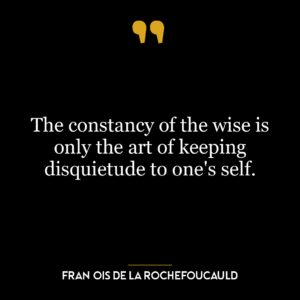This quote, “A change of fortune hurts a wise man no more than a change of the moon,” is a profound observation about the nature of change and how we react to it. The moon is a constant presence in our lives, yet it changes its appearance every night. Despite these changes, we don’t feel any personal loss or discomfort. The moon’s shifts are natural, expected, and beyond our control, much like the fluctuations in our fortunes.
The ‘wise man’ in the quote refers to an individual who has the wisdom to understand that change is a part of life. Just as the moon waxes and wanes, our fortunes rise and fall. This change is not something to fear or resist, but to accept as a part of the natural order of things. A wise person knows that fortunes are not permanent, and thus, does not become overly attached to them. They enjoy good fortune when it comes, but they do not despair when it leaves. They understand that just as the moon will wax again after waning, good fortune will return in time.
Applying this idea to today’s world, we often find ourselves in a society that places a great deal of emphasis on success, wealth, and status. We’re conditioned to fear failure and loss, which can lead to a great deal of stress and unhappiness. But if we adopt the perspective outlined in this quote, we can learn to see these changes in fortune as natural and inevitable, rather than catastrophic. This can help us to become more resilient and adaptable in the face of life’s ups and downs.
In terms of personal development, this quote encourages us to cultivate a sense of detachment from our fortunes. This doesn’t mean that we shouldn’t strive for success or take pleasure in our achievements. Rather, it means that we shouldn’t let our self-worth be defined by them. By developing this kind of wisdom, we can enjoy the good times without becoming complacent, and endure the bad times without losing hope. In this way, we can lead a more balanced and fulfilling life.














